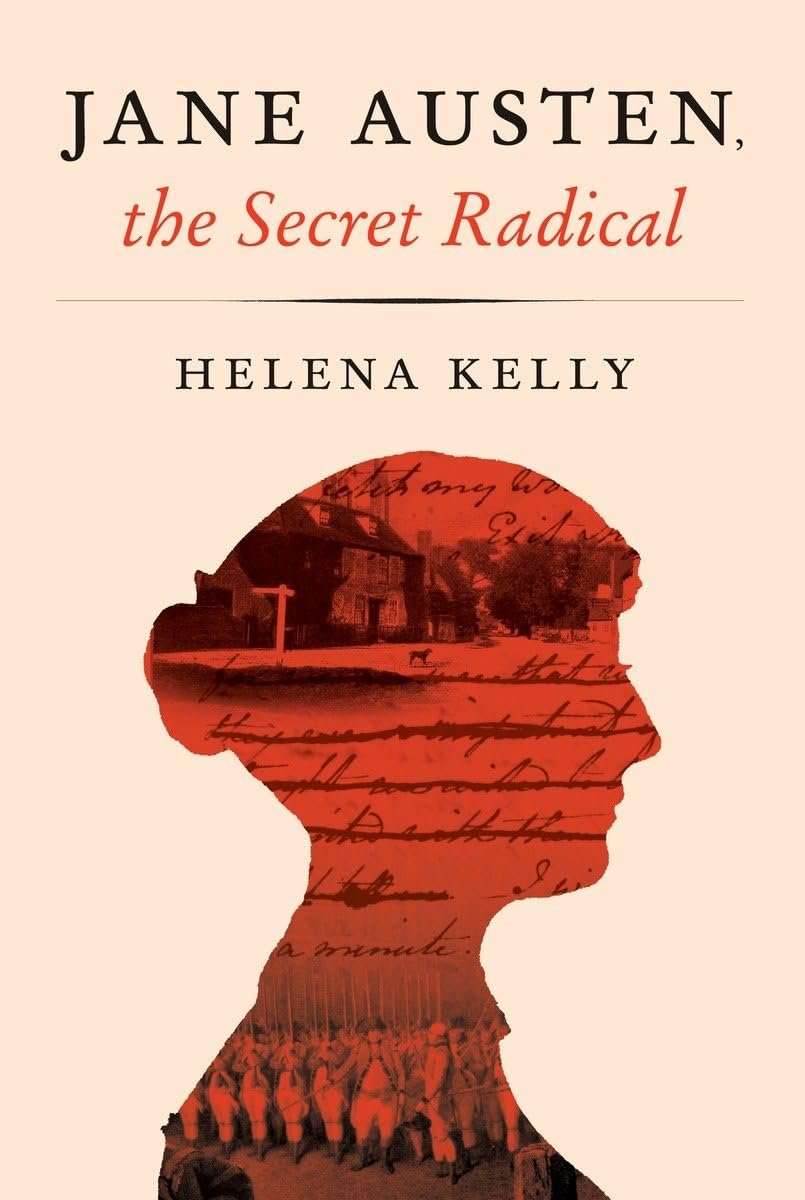Review of Jane Austen, the Secret Radical by Helena Kelly
Helena Kelly’s Jane Austen, the Secret Radical offers a bold, revisionist reading of one of English literature’s most beloved authors.
Far from the genteel chronicler of courtship and tea-table manners, Kelly presents Austen as a fiercely political thinker—one whose novels interrogate war, slavery, enclosure, female education, and the limits of patriarchal power. In doing so, Kelly makes a compelling case: Austen was not just a novelist of manners, but a novelist of resistance.
Structured around Austen’s major novels, each chapter in The Secret Radical excavates the historical, political, and economic anxieties that shaped Austen’s time and, Kelly argues, her fiction. For example, Kelly reads Mansfield Park as a coded critique of Britain’s colonial slave economy, situating Sir Thomas Bertram’s wealth in the brutal plantation system of Antigua. Northanger Abbey becomes a satire not just of gothic tropes, but of the Church and the moral bankruptcy of a society that allowed women to die in childbirth from neglect.
Kelly’s approach is unapologetically speculative, and at times provocative. She reads Austen’s silences and omissions as meaningful—suggesting that what is not said often reveals more than what is.
This method can be thrilling, especially when it brings hidden contexts into view. Yet it also demands a high degree of interpretive license, and some of her conclusions—while intriguing—rest more on imaginative scaffolding than textual certainty.
Still, what Jane Austen, the Secret Radical does best is remind readers that Austen lived in a world fraught with political tension: war with France, economic upheaval, and a legal system stacked against women. Kelly insists that Austen was not merely aware of these forces—she was writing against them, encoding her criticism into tightly controlled prose, irony, and characterization. As Kelly writes, “To be radical in Jane Austen’s time was not to wear it on your sleeve. It was to be clever about it. It was to be quiet. It was to survive.”
The book is not without its flaws. At times, Kelly’s arguments overreach or rely heavily on biographical conjecture. Some readers may find the tone uneven—swinging between scholarly insight and contemporary colloquialism—but this accessibility may also be its greatest strength. Kelly makes Austen’s political context feel urgent and relevant, inviting a new generation to read beyond empire waistlines and love stories.
For readers interested in feminist literary criticism, historical context, and the subversive potential of fiction, Jane Austen, the Secret Radical is a provocative, illuminating read. It challenges us to reconsider what we think we know about Austen—and perhaps, more importantly, why we’ve been taught to overlook the sharper edges of her genius.
Recommended for: readers of literary criticism, feminist scholars, fans of Austen seeking a deeper look, and anyone curious about how fiction resists power.
